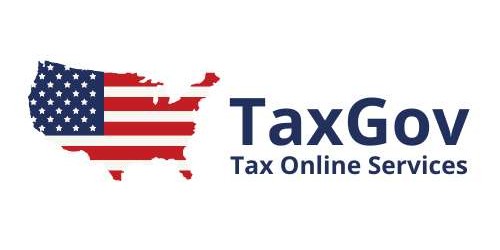Is ITIN Required for Rental Income?
Is ITIN Required for Rental Income? For non-U.S. citizens earning rental income from properties located in the United States, an Individual Taxpayer Identification Number (ITIN) is often required. An ITIN allows you to fulfill your U.S. tax responsibilities by reporting the rental income on your tax returns. It serves as the identifier on tax documents just as a Social Security Number does for U.S. citizens. The IRS mandates ITINs primarily to ensure that non-citizens comply with tax laws and obligations. If you plan to rent out property in the U.S. and are not eligible for a Social Security Number, obtaining an ITIN is the first step towards proper tax compliance.
Understanding Rental Income Taxation
Understanding Rental Income Taxation Rental income taxation is a crucial aspect for property owners to understand, especially for non-resident aliens in the United States. Rental income is treated as ordinary income and must be reported on a U.S. tax return, whether or not you receive it in the U.S. This includes earnings above USD 600 annually. Maintaining meticulous records of income and expenses is vital as you can often deduct certain expenses related to property management, thereby reducing your overall tax liability. The responsibility lies with the property owner to accurately report this income, which is why acquiring an ITIN is pivotal for those without a Social Security Number. Failing to comply with U.S. taxation laws can lead to penalties or other legal repercussions.
Need help getting your ITIN?
We can help you apply for your ITIN quickly and easily. Let our team handle the process for you.
Steps to Obtain an ITIN for Rental Income
Steps to Obtain an ITIN for Rental Income Begin by completing Form W-7, which is the Application for IRS Individual Taxpayer Identification Number. You will also need to provide proof of your identity and foreign status using documents such as a passport, or national identification card. It’s essential to submit these documents to the IRS, and they recommend using certified copies or originals that will be returned to you after processing. Next, attach the completed W-7 form, identification documents, and your federal income tax return. You can mail these to the IRS or file them through an Acceptance Agent authorized by the IRS. Processing typically takes between 6 to 10 weeks, after which you’ll receive your ITIN, allowing you to properly report your rental income.
Can ITIN Holders Rent Out Property in the U.S.?
Can ITIN Holders Rent Out Property in the U.S.? Yes, ITIN holders are allowed to rent out properties in the United States. Having an ITIN does not grant the holder residency or a change in immigration status but rather enables them to meet their U.S. tax obligations. ITIN holders can invest in U.S. real estate and manage rental properties, provided they report this income to the IRS. It’s critical for these individuals to understand the tax implications fully, maintain accurate rental income records, and comply with federal and state regulations. An ITIN facilitates transparent investment management, ensuring that property owners do not encounter legal trouble related to tax noncompliance.
Why Compliance is Important for Property Owners
Why Compliance is Important for Property Owners Compliance with U.S. tax laws is vital for any property owner earning rental income within the United States. The IRS actively enforces tax regulations, and failing to comply can result in significant fines, penalties, or even legal action. Moreover, tax compliance ensures that you maintain good standing with the IRS, which could be beneficial for any future investments or residency plans. As a property owner, you benefit from a range of legal protections and support when you are compliant. Acquiring an ITIN is an essential part of the compliance process for individuals without a U.S. Social Security Number, ensuring transparency and proper reporting of all income derived from rental activities.
The Role of ITIN in Filing Taxes on Rental Income
The Role of ITIN in Filing Taxes on Rental Income An ITIN plays a pivotal role in filing taxes for rental income earned in the United States by those who are not eligible for a Social Security Number. It acts purely as a tax processing number, essential for reporting rental income and any associated deductions. ITINs ensure that property owners without residency status can adhere to taxation requirements, file state and federal tax returns, and avoid penalties for failing to report income. Additionally, an ITIN is required for claiming refund credits and may be used as identification for other financial transactions tied to property management. Therefore, securing an ITIN is crucial for proper financial planning and legal compliance in rental property ventures.
Common Challenges in the ITIN Application Process
Common Challenges in the ITIN Application Process While applying for an ITIN may seem straightforward, applicants often face hurdles that can complicate or delay the process. One common challenge is gathering the appropriate identification documents, which must be certified copies or originals. Navigating the paperwork, ensuring accuracy on Form W-7, and submitting along with a current tax return can also cause confusion. Moreover, applicants sometimes face delays due to the processing timeframe, especially if documents are sent during peak tax times. Misunderstanding these requirements can lead to further complications, such as having applications returned. To avoid these issues, many applicants choose to work with Acceptance Agents or tax professionals familiar with the IRS requirements, who can offer guidance and ensure that all forms and documents are correctly compiled and submitted.
Need help getting your ITIN?
We can help you apply for your ITIN quickly and easily. Let our team handle the process for you.
Influence on Future Aspects of Real Estate Ownership
Influence on Future Aspects of Real Estate Ownership Possessing an ITIN can significantly impact future real estate ownership aspirations and operations in the U.S. With an ITIN, property owners can legally report income, seek financing from certain U.S. lenders, and build credit in the country. This number simplifies becoming a responsible U.S. taxpayer, which positively reflects on any records linked to property investments or transactions. Having an ITIN, as a recognition of legitimate financial activity, often becomes useful in future legal dealings, securing mortgages, or even in planning strategies for expanding a property portfolio. Hence, for non-residents aiming to benefit from real estate investments, acquiring and maintaining an ITIN is a fundamental step in ensuring both conformity with U.S. tax laws and potential growth in their investment endeavors.


